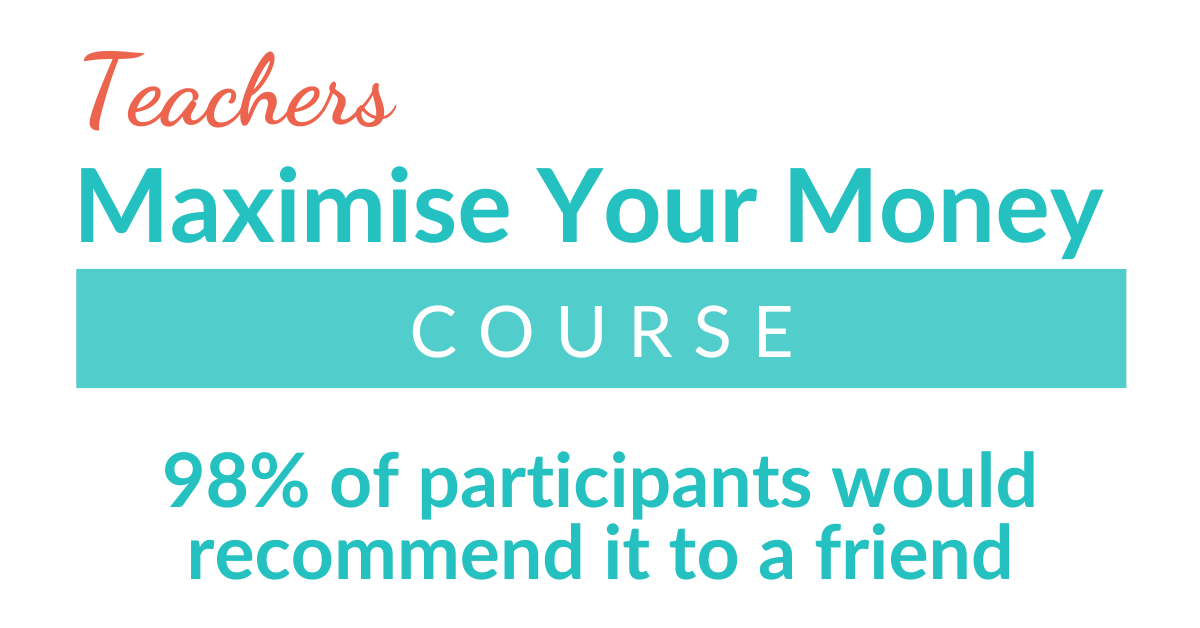Claim your freebie!
Financial Security for Teachers
- Release fears of the future
- Financially resilient & secure
- Provide great experiences for you and your family
- Enjoy life to the full now
Take a course!
- feel good about money, enjoy life more and feel like YOU again
- reduce stress levels & create time for you & your family
- pay off debt, make smart savings & build wealth
To be honest, who wouldn't like a payrise? We could all do with some more money in our pockets, couldn't we? Although Scottish teachers have recently negotiated a decent payrise, there are many other public servants and those in the private sector still in need of a hefty payrise.
What are any of us likely to get? Who knows?
A 2% payrise would only give an unpromoted nurse approximately £30-£35* more in their pocket each month. A teacher at the top of the scale could expect around an extra monthly £40-£45* in their pocket for the same 2% increase in pay.
I know that 59% of teachers feel that they are just managing now, but don't think they are preparing effectively for the future. This is a worrying situation for them.
A third of teachers are worried about providing for their children in the future, a quarter are worried about paying their debts, and 30% are fed up of living from payday to payday.
Living expenses are causing concern for 42% and a huge 61% are majorly concerned about planning for the future, including retiring before they drop dead in the classroom.
There is another way.

Rather than waiting for that payrise to come, I think we need to give ourselves a payrise! We need to take control of our own situations. And we need to do it soon. Before interest rates rise. And before we crumble under the pressure!
If you could save yourself £250 per month, (Now don't shut off, thinking that saving £250 per month is impossible. Just bear with me for a minute!) then by the end of the year you could be around £3,000 better off. Sounds great. But it's what you could do with that £3,000 that really makes the difference.
What could you do with 3 grand?
Pay off some debts? Paying only the minimum payment on a credit card balance of £3000 with average interest will take you over 27 years to pay off. Paying it off this year will save you £3961 in interest! That £250 per month saving is now worth £6961 to you!
What else could you do with it?
Pay off some of your mortgage? Putting a £3,000 lump sum into a £100,000 mortgage would save you £4,000 in interest and it would be paid off a year early! That's your £250 per month suddenly grown to a £7,000 saving! Plus you will save on a year's worth of mortgage payments, which in this example was £501 per month, another £7014. That's over 11 grand saving from your original £3000! And that's just in YEAR ONE! Imagine the ongoing savings! What could you do with them?

But it sounds too good to be true doesn't it?
My advice would normally be, if it sounds too good to be true, then it generally is. But this isn't!
It's simple maths and it's the power of compound interest!
It either works against you, if you have debts. Or it works for you, if you have investments.
It works FOR me, and it's working every single day, and night! Even when I am fast asleep, my wee pal compound interest is working away for me. It's helping me to reach my dream of retiring at 55!
And I want it to work for you too!
I want to help you to make a real difference to your life. That's why I wrote The Path to Financial Security - a course that will truly make you rethink your whole attitude to money. Spending less money will seem easy, not a chore!
Don't believe me? The savings on my Your Money Sorted course were over £200 PER MONTH for previous clients, and this course is bigger and better! I truly think that savings of £250 are easily possible, if you are prepared to put in the effort.
And just remember how you can put that £250 to good use! It multiplies in value, if you use it wisely.

Click here to join now
OR
Click here to find out more about the course
Still not sure?
Got questions about the course?
Check out these 6 great reasons for joining the course
No time for courses? Find out how you could make time to invest in yourself and your future.
*approximate figures









